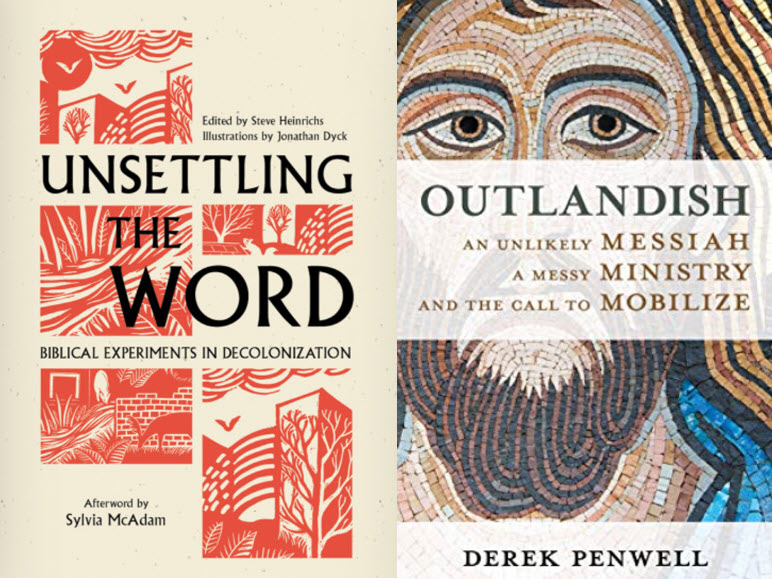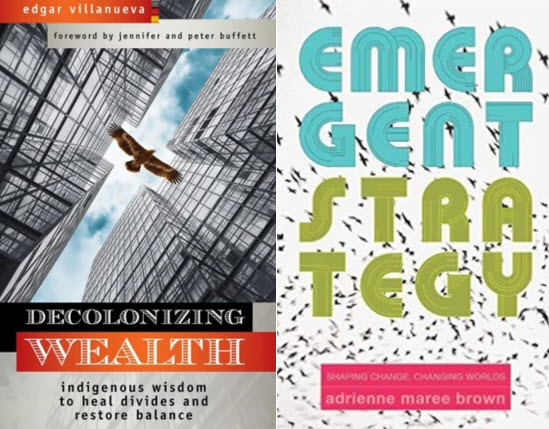For March I’m sharing my traditional list of the best books I read over the last 30 days that were published this year alongside a bonus list of books I read recently that were published between 2015 and 2018.

- (5+) Outlandish: An Unlikely Messiah, a Messy Ministry, and the Call to Mobilize by Derek Penwell (Chalice Press, 2019)
- (5.0) Unsettling the Word: Biblical Experiments in Decolonization edited by Steve Heinrichs (ORBIS, 2019)
- (4.5) The Color of Compromise: The Truth about the American Church’s Complicity in Racism by Jemar Tisby (Zondervan, 2019)
- (4.0) Becoming a Just Church: Cultivating Communities of God’s Shalom by Adam L. Gustine (IVP Books, 2019)
- (4.0) Alienated America: Why Some Places Thrive While Others Collapse by Timothy P. Carney (Harper, 2019)
- (3.0) Irresistible Faith: Becoming the Kind of Christian the World Can’t Resist by Scott Sauls (Thomas Nelson, 2019)
Bonus Books
I also had the privilege of reading a few good books written recently but not this year.

- (5.0) Decolonizing Wealth: Indigenous Wisdom to Heal Divides and Restore Balance by Edgar Villanueva (Berrett-Koehler Publishers, 2018)
- (4.5) Emergent Strategy: Shaping Change, Changing Worlds by adrienne maree brown (AK Press, 2017)
- (4.0) The Mission-Driven Venture: Business Solutions to the World’s Most Vexing Social Problems by Marc Lane (Jossey-Bass, 2015)
- (4.0) Tuning In: Six Ways to Get Your Life Back from Technology by Adam McClane (The Youth Cartel, 2017)
So What?
The status quo hasn’t worked in a long time (and honestly never did), and isn’t a helpful way forward according to all three of this month’s books rated five or higher.
Derek Penwell is an activist who serves as the Senior Minister at Douglass Avenue Christian Church (Disciples of Christ) in Louisville, Kentucky. His previous book – The Mainliner’s Survival Guide to the Post-Denominational World – was named of my top ten books of 2014. His new book –
Outlandish: An Unlikely Messiah, a Messy Ministry, and the Call to Mobilize – introduces readers to a Jesus that differs dramatically from common expectations (as much now in the 21st century as in the 1st century). Readers should be warned that within these pages they will meet the real Jesus – the Jesus Penwell labels “the worst.” Jesus truly deserves this label as one who acted as the worst recruiter in history, displayed the worst social judgment, taught as the worst moral philosopher, and used the worst teaching style. This same Jesus, however, was focused on his mission of creating a more peaceful and just world for all people, and expects those bold enough to follow in the Way of Jesus to enact it in the here and now.
Both of this month’s five star rated books contain variants of the word “decolonizing” in their titles. Decolonization is challenging, but work necessary to create the best possible future world for all people.
Edgar Villaneuva has given away over $127 million since 2005 as a program officer for multiple foundations and as Vice President of Programs and Advocacy at the Schott Foundation. As a Native American, Villaneuava is a minority in what has long been the dominantly white field of philanthropy.
Decolonizing Wealth: Indigenous Wisdom to Heal Divides and Restore Balance tells the story of what the world of philanthropy and finance is really like today with ample attention to the historical reasons for such. More than an historical inquiry, the text calls on readers to do the difficult and important work of decolonizing. His wide ranging recommendations include those with money doing the right things with the 95% (governmental regulations require foundations to spend 5% of their funds annually), replacing hierarchical approaches to decision making with horizontal and participatory ones, and creating a trust fund to which Native Americans and and African Americans could apply for grants for various asset building projects (funded by a reparations tithe of 10% of all foundation assets).
Steve Heinrichs is the editor of Unsettling the Word: Biblical Experiments in Decolonization – a book made possible by the diverse wisdom of its 60 indigenous and settler contributors. Heinrichs, Director of Indigenous-Settler Relations for the Mennonite Church of Canada, facilitated the massive effort of gathering and ordering the chapters, and authored a few as well. Originally published in Canada last year, the American edition was released in 2019. As I reflect on my experience as a reader, I realize that I re-read more chapters in this book than in any I’ve read in quite some time. I did so because of how powerfully some stories confronted me, how deeply others impacted me, and how richly yet others helped me better understand key biblical texts.